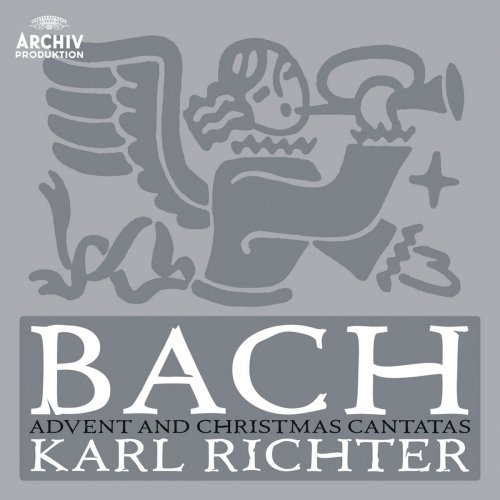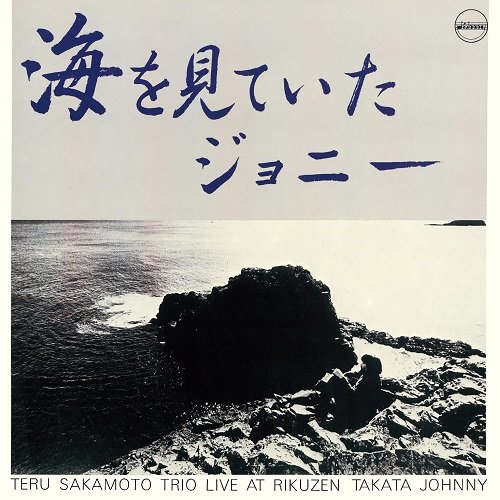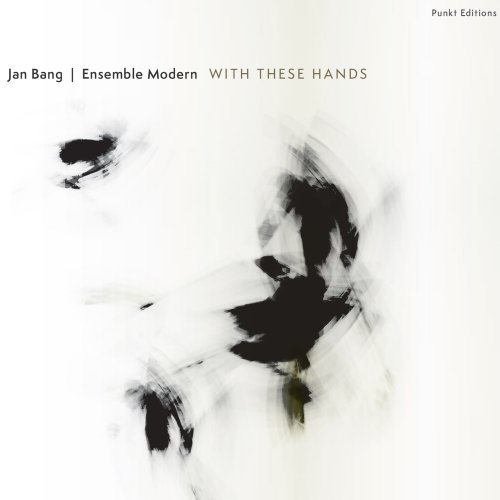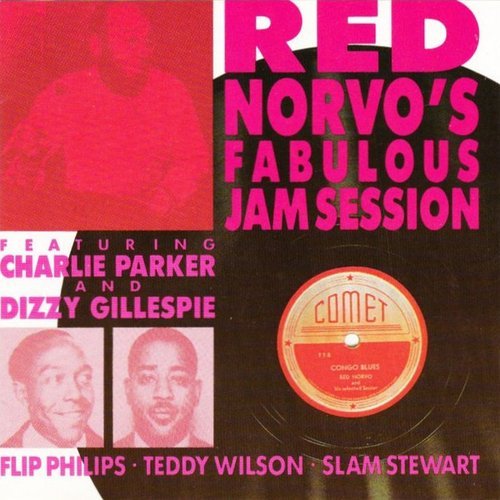Karl Richter - Bach: Advent And Christmas Cantatas (2013)

Artist: Karl Richter
Title: Bach: Advent And Christmas Cantatas
Year Of Release: 2013
Label: ARCHIV Produktion
Genre: Classical
Quality: FLAC (tracks)
Total Time: 4:37:18
Total Size: 1.24 GB
WebSite: Album Preview
Tracklist:Title: Bach: Advent And Christmas Cantatas
Year Of Release: 2013
Label: ARCHIV Produktion
Genre: Classical
Quality: FLAC (tracks)
Total Time: 4:37:18
Total Size: 1.24 GB
WebSite: Album Preview
01. Nun komm, der Heiden Heiland, Cantata BWV 61 : 1. "Nun komm, der Heiden Heiland"
02. Nun komm, der Heiden Heiland, Cantata BWV 61 : 2. "Der Heiland ist gekommen"
03. Nun komm, der Heiden Heiland, Cantata BWV 61 : 3. "Komm, Jesu, komm zu deiner Kirche"
04. Nun komm, der Heiden Heiland, Cantata BWV 61 : 4. "Siehe, ich stehe vor der Tür"
05. Nun komm, der Heiden Heiland, Cantata BWV 61 : 5. "Öffne dich, mein ganzes Herz"
06. Nun komm, der Heiden Heiland, Cantata BWV 61 : 6. "Amen"
07. Bereitet die Wege, bereitet die Bahn, Cantata BWV 132 : 1. "Bereitet die Wege, bereitet die Bahn"
08. Bereitet die Wege, bereitet die Bahn, Cantata BWV 132 : 2. "Willst du dich Gottes Kind"
09. Bereitet die Wege, bereitet die Bahn, Cantata BWV 132 : 3. "Wer bist du? Frage dein Gewissen"
10. Bereitet die Wege, bereitet die Bahn, Cantata BWV 132 : 4. "Ich will, mein Gott, dir frei heraus"
11. Bereitet die Wege, bereitet die Bahn, Cantata BWV 132 : 5. "Christi Glieder, ach bedenket"
12. Bereitet die Wege, bereitet die Bahn, Cantata BWV 132 : 6. "Ertöt uns durch dein Güte"
13. Christen, ätzet diesen Tag, Cantata BWV 63 : 1. "Christen, ätzet diesen Tag"
14. Christen, ätzet diesen Tag, Cantata BWV 63 : 2. "O sel'ger Tag"
15. Christen, ätzet diesen Tag, Cantata BWV 63 : 3. "Gott, Du hast es wohl gefüget"
16. Christen, ätzet diesen Tag, Cantata BWV 63 : 4. "So kehret sich nun heut das bange Leid"
17. Christen, ätzet diesen Tag, Cantata BWV 63 : 5. "Ruft und fleht den Himmel an"
18. Christen, ätzet diesen Tag, Cantata BWV 63 : 6. "Verdoppelt euch demnach, ihr heißen Andachtsflammen"
19. Christen, ätzet diesen Tag, Cantata BWV 63 : 7. "Höchster, schau in Gnaden an"
20. Christum wir sollen loben schon, Cantata BWV 121 : 1. "Christum wir sollen loben schon"
21. Christum wir sollen loben schon, Cantata BWV 121 : 2. "O du von Gott erhöhte Kreatur"
22. Christum wir sollen loben schon, Cantata BWV 121 : 3. "Der Gnade unermesslich's Wesen"
23. Christum wir sollen loben schon, Cantata BWV 121 : 4. "Johannis freudenvolles Springen"
24. Christum wir sollen loben schon, Cantata BWV 121 : 5. "Doch wie erblickt es dich in deiner Krippe"
25. Christum wir sollen loben schon, Cantata BWV 121 : 6. "Lob, Ehr und Dank sei dir gesagt"
26. Sehet, welch eine Liebe, Cantata BWV 64 : 1. "Sehet, welch eine Liebe"
27. Sehet, welch eine Liebe, Cantata BWV 64 : 2. "Das hat er alles uns getan"
28. Sehet, welch eine Liebe, Cantata BWV 64 : 3. "Geh, Welt, behalte nur das Deine"
29. Sehet, welch eine Liebe, Cantata BWV 64 : 4. "Was frag ich nach der Welt"
30. Sehet, welch eine Liebe, Cantata BWV 64 : 5. "Was die Welt in sich hält"
31. Sehet, welch eine Liebe, Cantata BWV 64 : 6. "Der Himmel bleibet mir gewiss"
32. Sehet, welch eine Liebe, Cantata BWV 64 : 7. "Von der Welt verlang ich nichts"
33. Sehet, welch eine Liebe, Cantata BWV 64 : 8. "Gute Nacht, o Wesen"
34. Gottlob! Nun geht das Jahr zu Ende, Cantata BWV 28 : 1. "Gottlob! nun geht das Jahr zu Ende"
35. Gottlob! Nun geht das Jahr zu Ende, Cantata BWV 28 : 2. "Nun lob, mein Seel, den Herren"
36. Gottlob! Nun geht das Jahr zu Ende, Cantata BWV 28 : 3. "So spricht der Herr"
37. Gottlob! Nun geht das Jahr zu Ende, Cantata BWV 28 : 4. "Gott ist ein Quell"
38. Gottlob! Nun geht das Jahr zu Ende, Cantata BWV 28 : 5. "Gott hat uns im heurigen Jahre gesegnet"
39. Gottlob! Nun geht das Jahr zu Ende, Cantata BWV 28 : 6. "All solch dein Güt wir preisen"
40. Gott, wie dein Name, so ist auch dein Ruhm, Cantata BWV 171 : 1. "Gott, wie dein Name, so ist auch dein Ruhm"
41. Gott, wie dein Name, so ist auch dein Ruhm, Cantata BWV 171 : 2. "Herr, soweit die Wolken gehn"
42. Gott, wie dein Name, so ist auch dein Ruhm, Cantata BWV 171 : 3. "Du süßer Jesus-Name du"
43. Gott, wie dein Name, so ist auch dein Ruhm, Cantata BWV 171 : 4. "Jesus soll mein erstes Wort"
44. Gott, wie dein Name, so ist auch dein Ruhm, Cantata BWV 171 : 5. "Und da du, Herr, gesagt"
45. Gott, wie dein Name, so ist auch dein Ruhm, Cantata BWV 171 : 6. "Dein ist allein die Ehre"
46. Ach Gott, wie manches Herzeleid, Cantata BWV 58 : 1. "Ach Gott, wie manches Herzeleid"
47. Ach Gott, wie manches Herzeleid, Cantata BWV 58 : 2. "Verfolgt dich gleich die arge Welt"
48. Ach Gott, wie manches Herzeleid, Cantata BWV 58 : 3. "Ich bin vergnügt in meinem Leiden"
49. Ach Gott, wie manches Herzeleid, Cantata BWV 58 : 4. "Kann es die Welt nicht lassen"
50. Ach Gott, wie manches Herzeleid, Cantata BWV 58 : 5. "Ich hab für mir ein schwere Reis"
51. Sie werden aus Saba alle kommen, Cantata BWV 65 : 1. "Sie werden aus Saba alle kommen"
52. Sie werden aus Saba alle kommen, Cantata BWV 65 : 2. "Die Könige aus Saba kamen dar"
53. Sie werden aus Saba alle kommen, Cantata BWV 65 : 3. "Was dort Jesaias vorhergesehn"
54. Sie werden aus Saba alle kommen, Cantata BWV 65 : 4. "Gold aus Ophir ist zu schlecht"
55. Sie werden aus Saba alle kommen, Cantata BWV 65 : 5. "Verschmähe nicht, du, meiner Seele Licht"
56. Sie werden aus Saba alle kommen, Cantata BWV 65 : 6. "Nimm mich dir zu eigen hin"
57. Sie werden aus Saba alle kommen, Cantata BWV 65 : 7. "Ei nun, mein Gott, so fall ich dir getrost"
58. Meinen Jesum lass ich nicht, Cantata BWV 124 : 1. "Meinen Jesum lass ich nicht"
59. Meinen Jesum lass ich nicht, Cantata BWV 124 : 2. "So lange sich ein Tropfen Blut"
60. Meinen Jesum lass ich nicht, Cantata BWV 124 : 3. "Und wenn der harte Todesschlag"
61. Meinen Jesum lass ich nicht, Cantata BWV 124 : 4. "Doch ach! welch schweres Ungemach"
62. Meinen Jesum lass ich nicht, Cantata BWV 124 : 5. "Entziehe dich eilends"
63. Meinen Jesum lass ich nicht, Cantata BWV 124 : 6. "Jesum lass ich nicht von mir"
64. Meine Seufzer, meine Tränen, Cantata BWV 13 : 1. "Meine Seufzer, meine Tränen"
65. Meine Seufzer, meine Tränen, Cantata BWV 13 : 2. "Mein liebster Gott"
66. Meine Seufzer, meine Tränen, Cantata BWV 13 : 3. "Der Gott, der mir hat versprochen"
67. Meine Seufzer, meine Tränen, Cantata BWV 13 : 4. "Mein Kummer nimmet zu"
68. Meine Seufzer, meine Tränen, Cantata BWV 13 : 5. "Ächzen und erbärmlich Weinen"
69. Meine Seufzer, meine Tränen, Cantata BWV 13 : 6. "So sei nun, Seele"
70. Was mein Gott will, das g'scheh allzeit, Cantata BWV 111 : 1. "Was mein Gott will, das g'scheh allzeit"
71. Was mein Gott will, das g'scheh allzeit, Cantata BWV 111 : 2. "Entsetze dich, mein Herze, nicht"
72. Was mein Gott will, das g'scheh allzeit, Cantata BWV 111 : 3. "O Törichter! der sich von Gott entzieht"
73. Was mein Gott will, das g'scheh allzeit, Cantata BWV 111 : 4. "So geh ich mit beherzten Schritten"
74. Was mein Gott will, das g'scheh allzeit, Cantata BWV 111 : 5. "Drum wenn der Tod zuletzt den Geist"
75. Was mein Gott will, das g'scheh allzeit, Cantata BWV 111 : 6. "Noch eins, Herr, will ich bitten dich"
76. Jesus schläft, was soll ich hoffen?, Cantata BWV 81 : 1. "Jesus schläft, was soll ich hoffen?"
77. Jesus schläft, was soll ich hoffen?, Cantata BWV 81 : 2. "Herr! warum trittest du so ferne?"
78. Jesus schläft, was soll ich hoffen?, Cantata BWV 81 : 3. "Die schäumenden Wellen von Belials Bächen"
79. Jesus schläft, was soll ich hoffen?, Cantata BWV 81 : 4. "Ihr Kleingläubigen, warum seid ihr so furchtsam?"
80. Jesus schläft, was soll ich hoffen?, Cantata BWV 81 : 5. "Schweig, aufgetürmtes Meer!"
81. Jesus schläft, was soll ich hoffen?, Cantata BWV 81 : 6. "Wohl mir, mein Jesus spricht ein Wort"
82. Jesus schläft, was soll ich hoffen?, Cantata BWV 81 : 7. "Unter deinen Schirmen"
83. Ich habe genug, Cantata BWV 82 : 1. "Ich habe genug, ich habe den Heiland"
84. Ich habe genug, Cantata BWV 82 : 2. "Ich habe genug! Mein Trost ist nur allein"
85. Ich habe genug, Cantata BWV 82 : 3. "Schlummert ein, ihr matten Augen"
86. Ich habe genug, Cantata BWV 82 : 4. "Mein Gott! wenn kömmt das schöne: Nun!"
87. Ich habe genug, Cantata BWV 82 : 5. "Ich freue mich auf meinen Tod"
Karl Richter was regarded as one of the great Bach conductors of the twentieth century, noted for solid regularity in rhythms and a serious approach to the music, though he was not given to following the changing pronouncements of musicologists concerning historical accuracy in performance.
He was brought up in the tradition of German Protestant religious music; his father was a minister in the central German regions near where Johann Sebastian Bach had lived. Richter learned piano and organ, and as he approached his 12th birthday entered the Kreuzschule school in Dresden. After World War II, he entered the Leipzig Conservatory, where he studied with Rudolf Mauersberger, and also studied at the Leipzig Institute for Sacred Music, where he learned Bach interpretation from Karl Straube and Günther Ramin. Very soon he was appointed choirmaster of the Christuskirche in Leipzig at the age of 20, and in 1947 became the organist of the Thomanerkirche, both institutions with strong Bach traditions.
He left East Germany in 1950 to live in West Germany and settled in Munich, where he was organist of the Markuskirche and started teaching that same year at the Hochschule für Musik of Munich. He organized the Munich Bach Choir in 1951, and in 1953 added to it the Munich Bach Orchestra. His performances naturally centered on Bach and under Richter his musicians and singers became one of the most renowned organizations specializing in the music of the great German master and his era.
The formation of the Munich Bach Chorus and Orchestra reflected a growing international interest in music of the Baroque and, sparked by the advent of the LP record, the notion of integral series of composers' works. Deutsche Grammophon's Archiv label was the first of such historic specialty sub-labels. Richter and his Bach Choir and Orchestra became a major pillar of that label and recorded numerous Bach choral works, gaining international recognition.
They toured frequently, and Richter also played and recorded often as an organist and harpsichordist. In 1968, Richter made one of his most dramatic guest conducting tours when he conducted the St. John Passion and the B minor Mass in both Moscow and Leningrad at a time when religious music of any sort was rarely heard in the Soviet Union.
Although his regularity of tempo (some called it inflexibility) placed him apart from the Romantic manner of performing Bach, Richter's performances otherwise retained the Romantic era's approach, stressing the solemnity of Bach's music and including dramatic large-scale dynamic contrasts. Newer research and the growing popularity of "original" or "period" instrument performances did not affect his interpretations, which used modern instruments. In some respects, younger interpreters who emerged in the 1970s considered him the representative of an approach against which they were reacting.
Later in his career, Richter enlarged his repertory to conduct Classical, and even Romantic, era works, but tended to remain known primarily as a Baroque specialist. He is best remembered for his mastery of Baroque choral/orchestral works of the largest scale, where his architectural approach to the music is most effective. His recordings of the Bach Passions, oratorios, B minor Mass, and Magnificat, as well as Handel oratorios such as the Messiah, are considered his most important contribution to the Baroque discography. ~ Joseph Stevenson
He was brought up in the tradition of German Protestant religious music; his father was a minister in the central German regions near where Johann Sebastian Bach had lived. Richter learned piano and organ, and as he approached his 12th birthday entered the Kreuzschule school in Dresden. After World War II, he entered the Leipzig Conservatory, where he studied with Rudolf Mauersberger, and also studied at the Leipzig Institute for Sacred Music, where he learned Bach interpretation from Karl Straube and Günther Ramin. Very soon he was appointed choirmaster of the Christuskirche in Leipzig at the age of 20, and in 1947 became the organist of the Thomanerkirche, both institutions with strong Bach traditions.
He left East Germany in 1950 to live in West Germany and settled in Munich, where he was organist of the Markuskirche and started teaching that same year at the Hochschule für Musik of Munich. He organized the Munich Bach Choir in 1951, and in 1953 added to it the Munich Bach Orchestra. His performances naturally centered on Bach and under Richter his musicians and singers became one of the most renowned organizations specializing in the music of the great German master and his era.
The formation of the Munich Bach Chorus and Orchestra reflected a growing international interest in music of the Baroque and, sparked by the advent of the LP record, the notion of integral series of composers' works. Deutsche Grammophon's Archiv label was the first of such historic specialty sub-labels. Richter and his Bach Choir and Orchestra became a major pillar of that label and recorded numerous Bach choral works, gaining international recognition.
They toured frequently, and Richter also played and recorded often as an organist and harpsichordist. In 1968, Richter made one of his most dramatic guest conducting tours when he conducted the St. John Passion and the B minor Mass in both Moscow and Leningrad at a time when religious music of any sort was rarely heard in the Soviet Union.
Although his regularity of tempo (some called it inflexibility) placed him apart from the Romantic manner of performing Bach, Richter's performances otherwise retained the Romantic era's approach, stressing the solemnity of Bach's music and including dramatic large-scale dynamic contrasts. Newer research and the growing popularity of "original" or "period" instrument performances did not affect his interpretations, which used modern instruments. In some respects, younger interpreters who emerged in the 1970s considered him the representative of an approach against which they were reacting.
Later in his career, Richter enlarged his repertory to conduct Classical, and even Romantic, era works, but tended to remain known primarily as a Baroque specialist. He is best remembered for his mastery of Baroque choral/orchestral works of the largest scale, where his architectural approach to the music is most effective. His recordings of the Bach Passions, oratorios, B minor Mass, and Magnificat, as well as Handel oratorios such as the Messiah, are considered his most important contribution to the Baroque discography. ~ Joseph Stevenson


![David Buckley - The Lincoln Lawyer (Soundtrack from the Netflix Series) (2026) [Hi-Res] David Buckley - The Lincoln Lawyer (Soundtrack from the Netflix Series) (2026) [Hi-Res]](https://img.israbox.com/img/2026-02/04/vzp86w0v1k1yvpz6k1s70okfi.jpg)
![Richie Beirach - Jazz Adagio (2015) [Hi-Res] Richie Beirach - Jazz Adagio (2015) [Hi-Res]](https://www.dibpic.com/uploads/posts/2026-02/1770282211_rbja500.jpg)

![Batsumi - The Hunters 1974-1976 (2026 Remaster) (2026) [Hi-Res] Batsumi - The Hunters 1974-1976 (2026 Remaster) (2026) [Hi-Res]](https://img.israbox.com/img/2026-02/05/9v7nd2ua6woy4uoean9znxpu1.jpg)


![Gianluigi Trovesi - Cinque piccole storie (2026) [Hi-Res] Gianluigi Trovesi - Cinque piccole storie (2026) [Hi-Res]](https://img.israbox.com/img/2026-02/06/04dun4qdctri61rqigv8tm2is.jpg)